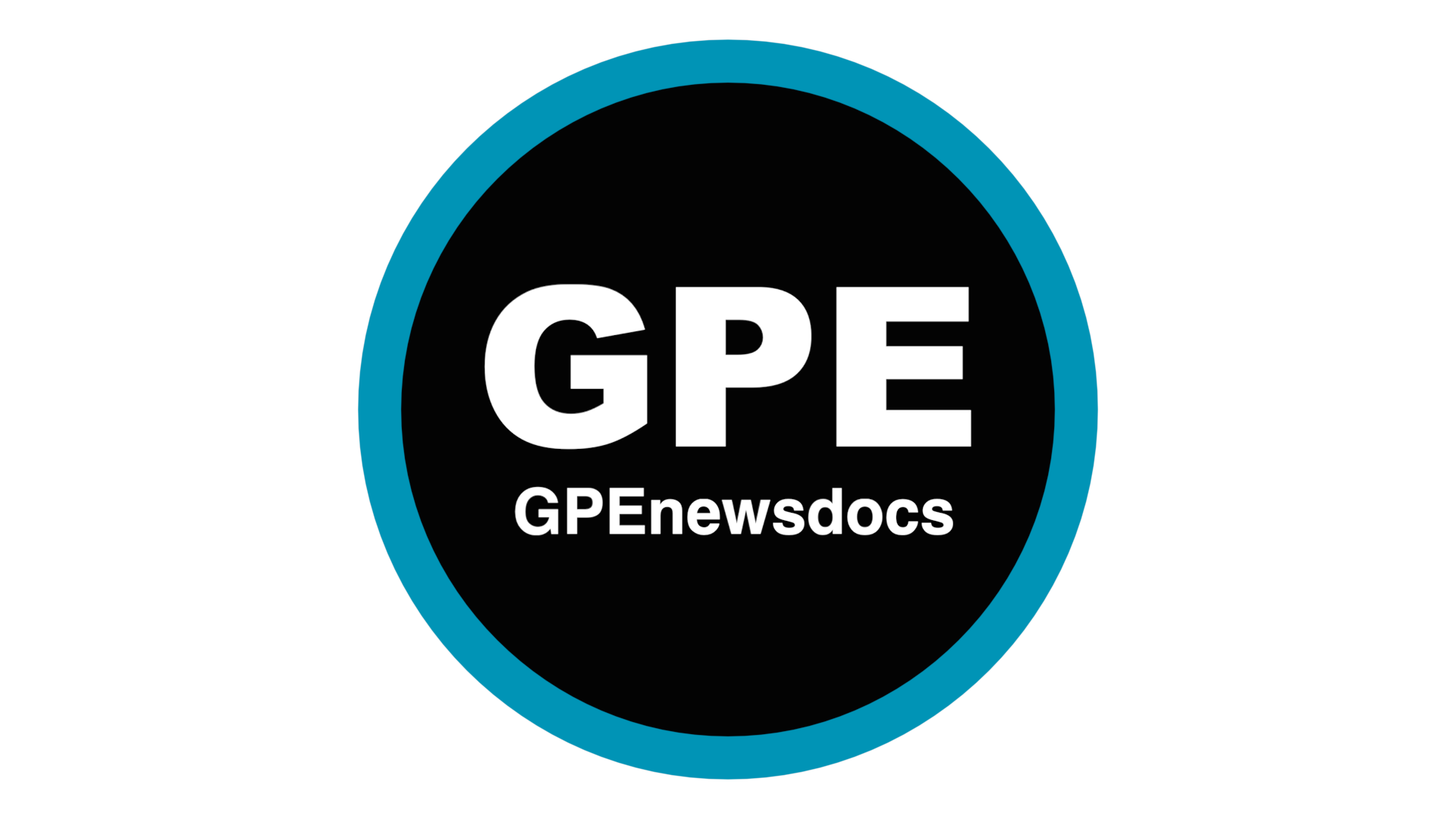The international community has the means to redesign the worldwide digital ecosystem to ensure critical functions performed in the digital world uphold the public interest and deliver a safe and inclusive digital future says Mike Kwet.
March 28, 2019 Produced by Lynn Fries
TRANSCRIPT
LYNN FRIES: “The principles which should underpin the digital realm are well established in the Free and Open Source Software (FOSS) community. They include sharing, the freedom to control one’s own computing experiences, access to knowledge, local sovereignty and customization, and community participation. Global South countries embraced FOSS during the 1990s and early aughts, but the technology ecosystem has changed with the rise of Big Tech, cloud computing, and artificial intelligence.”
“Initiatives such as FreedomBox and Solid are a recent manifestation of the FOSS community’s guiding ethos. They attempt to re-decentralize the Internet – including social media via projects like Mastodon and GNU Social – and provide true privacy from the prying eyes of Big Tech and the state. They are antagonistic to the entrenched political, economic, and geopolitics interests of concentrated wealth and power.”
“Cooperative approaches to ensure a safe and inclusive digital future require political, economic, technological, and ideological changes to the status quo. FOSS should be promoted by states for use in the public sector in combination with efforts to re-decentralize the Internet and provide user-friendly, state-of-the-art privacy tools. Privacy protections must be stronger than those included in the General Data Protection Regulation (GDPR), Data Care Act (DCA), and Protection of Personal Information Act (POPIA), which are not restrictive enough to protect the pervasive and personalized surveillance of individuals and populations. Antitrust initiatives should be pursued in an effort to break up corporations like Amazon, Google, and Facebook. Copyright and patents buttress concentrated power, and should be challenged as anti-cooperative forces in the international community.”
“Schools should educate children using “People’s Technology for People’s Power” – FOSS, proprivacy tools, and Internet decentralization tools and services. FOSS is excellent for education, as it provides the freedom to study, understand, modify, use, and share software, while the decentralization software and encryption guard against surveillance and centralizing economic dynamics.”
LYNN FRIES: It’s The Real News, I’m Lynn Fries. And that text was from a letter written by Michael Kwet as a contribution to the UN Secretary General High-Level Panel on Digital Cooperation.
Joining us to continue our conversation on the digital ecosystem, Michael Kwet joins us from New Haven, where he’s a Visiting Fellow at the Information Society Project at the Yale Law School. Welcome, Michael.
MICHAEL KWET: Thank you for having me on, Lynn.
LYNN FRIES: In part one, you said part of the reason we’ve seen a rise in Big Data and surveillance as a model for the digital society is because we’ve lost control over the digital ecosystem. Let’s pick it up there.
MICHAEL KWET: If you want to understand why you’re under surveillance, it’s not enough to say, ‘Oh look, we’re under surveillance.” These big corporations are collecting all of our data all the time. How did this happen? Part of it is because they have control over software, they have control over hosting of the data, they have control of it by centralized clouds. And they have an ideological hold over society, where everybody just assumes that this is the way it must be. So if you want to think about surveillance capitalism, you have to think about what about the technology allowed them to accumulate all of this data in the first place.
And if you look at the free software movement and you look at people like Richard Stallman and Eben Moglen–but many others, and this extends around to the Global South. If you look at what they have been saying about technology all along, including all the way up until the present with decentralization and Free and Open Source Software and being against centralization of the cloud, that needs to become part of the narrative because it has excellent explanatory power as to why this technology is working this way.
If we had ubiquitous encryption, plus Free and Open Source Software, plus decentralized technologies in place, and they were being used all the time, then it wouldn’t be so easy for anybody… If there’s no company in the middle, how are you going to get the data? So we can restructure the way the technology ecosystem works, but in order to understand why we wound up in a situation with all this surveillance in the first place, you have to think about, well, how does it work and how could it work alternatively? It’s not a given that it has to be this way if we’re going to use digital technology.
LYNN FRIES: Comment now on the state, as a follow-on to your earlier comments about how very few Big Tech corporations now control most critical functions that can be performed in the digital world. We should note that GAFAM, Google/Alphabet, Apple, Facebook, Amazon, and Microsoft, are the world’s top five digital corporations, with a combined market value topping three trillion dollars, to provide some context on the kind of reach of U.S. Big Tech into the world’s digital ecosystem.
MICHAEL KWET: Right. And it’s important to remember that the NSA is partnered with these corporations. As far as we know, they’re still partners with these corporations, and that when you’re under Big Data surveillance, you’re also under at least the surveillance of the United States, those who they’re partnered with, so the Five Eyes, to put people under surveillance through piggybacking off the corporate services. And so, states in general would like to have access to that information. And once the data becomes centralized into the hands of organizations, third parties, usually now it’s corporations, that the states have always the capabilities of demanding that they have access to that data. So it’s another reason why centralization just doesn’t work. And as far as far as that goes for places in the Global South, why should a foreign intelligence agency have access to your day to day life?
LYNN FRIES: In your contribution to the UN Secretary General’s High-Level Panel on Digital Cooperation, you wrote that “we have reached a point of crisis, and we need proposals that go beyond “tweaking” the power of Big Tech to do as it wishes through (weak) regulations naively contemplated or championed as real solutions to the problem at hand.”
MICHAEL KWET: Right. A regulated surveillance state it still a surveillance state. The point is, about getting rid of the surveillance, is that you’re not under surveillance. It’s not just how they use the data once they get it, it’s not being under surveillance in the first place.
LYNN FRIES: The U.S.-led, Western model of technology for the design of the digital ecosystem is being rolled out as a blueprint for the rest of the world; notably, the developing world, where Big Tech want to expand into new markets. Among the countries of the Global South, China has largely adopted this model. What’s your take on China?
China is a country that everybody should be keeping an eye on. A lot of their services, like for example WeChat, which everybody uses. WeChat is kind of like their WhatsApp. If you’re a U.S. listener, you probably don’t use WhatsApp, but most people do. It’s a chat app kind of like Facebook Messenger. And in China, they use WeChat, but it’s much more than that. They have all sorts of sharing of news going on and they have many games that they can share. Everything runs through WeChat. But it’s mostly driven towards the Chinese market. Baidu is a similar kind of thing for searching. It’s driven towards the Chinese market. I believe TikTok is the one that’s catching on in the West, and it’s not guaranteed that their software products remain primarily China-driven.
China is also exporting surveillance technology to places like Zimbabwe and elsewhere, which is not good. They do the video analytics, the facial recognition, and so on. And they’re predominantly capitalist, so their impulse is going to be towards exporting their technology and trying to gain a foothold into other markets. Coming from the West, it could be exaggerated. The U.S. is overwhelmingly dominant in the global technology ecosystem. Bar none, they are the top dog. However, it doesn’t mean that other countries aren’t also part of the colonization process.
LYNN FRIES: Given your point that the U.S. is overwhelmingly the dominant player globally in the digital ecosystem, but that that shouldn’t be taken to mean that other countries cannot also be part of a process of digital colonialization and data extraction under the Western model of technology, what’s your take on the rest of the Global South?
MICHAEL KWET: Well, no country in world history has ever gotten wealthy when a foreign entity, a corporation or government, has control and ownership over the core infrastructure. So to sit here and think that Microsoft, Google, Facebook, all these guys are just going to be the ones to provide these services, that it’s going to turn out well for these countries, it’s completely wrong. And in the Global South, it’s very typical for countries to aspire to compete and replicate what has come out of Silicon Valley. So in India, they might want to create their own kind of Facebook or their own kind of Tencent, and you’ll see some of their officials saying those things. In South Africa, the notion is, “We need to compete in the AI economy and we need to develop our own homegrown tech companies.” And that’s fine to do it as tech companies, but if you’re just replicating what is done in Silicon Valley, you’re going to concentrate resources locally.
And so, when you also look at things like data localism, where you’re requiring that data that comes out of services are stored on servers local in your country, the question winds up becoming, well, what is that actually getting for your people. If Facebook can still have servers in your country, it’s not getting rid of Facebook. Banning something like Facebook is usually something that will require… I mean, what are you going to do? Are you going to ban Facebook? It requires a draconian measure like a firewall, like the Great Firewall of China. So that doesn’t seem to be an option if you want to have freedom speech in your country. And trying to replicate these, they’re just not going to compete on the big services.
But not only that, some people make the case, and I think this is still right, that in more internally authoritarian-oriented countries, that storing data locally can help them get access to data about their citizens. If I’m a citizen in Zimbabwe and there is extreme hostility towards homosexuality and there’s state repression, do I want to be on a social network where all the data is stored locally and the Zimbabwean government can go in and get access to that data instantly? Why should the West have it? Yeah, the West shouldn’t have it either. So the notion is here that a different model of how to do the digital society is in order. I mean, this is what is in the interests of the Global South and smaller countries. But it’s in the interest of the broad people too, because you don’t want to have concentrated wealth in your local economy either.
LYNN FRIES: You argue that for the international community to arrive at a safe and inclusive digital future, political, economic, technological, and ideological changes to the status quo are going to be needed. Briefly talk about that and give us some examples, say for the case of social networking. What kind of technological change to the status quo would be needed there?
MICHAEL KWET: So for something like social networking, you need to reengineer the way it is. And for that we have things like FreedomBox, we have things like Mastodon social networking. These are alternatively structured. Mastodon is an alternately structured social network, FreedomBox is a device you can put in your household that will become a personal cloud and a personal server of yours of yours that can allow people to route traffic to each other and host their own data, either in a peer to peer way or then using decentralized servers in communities, that will, instead of going through intermediaries you’re just going horizontally. So the picture isn’t sent to Facebook first and then from Facebook to you, it’s sent either directly to each other or in a decentralized fashion. These are technological solutions that we need to put into place. And laws can be put in place to help us make sure that those technologies, the FreedomBoxes and so on, come into place.
But if we’re looking at regulations behind something like, let’s say an e-commerce company is sending out books to people and it’s to their home addresses, that can reveal a lot about you. So this is where something like information fiduciaries and what’s called the Data Care Act in the United States can come into place. If a privacy law is so weak that allows just for “informed consent” and it allows these companies to still stand and collect the minutia of everybody’s details on a day to day basis, then you know that the privacy law actually wasn’t very much of a privacy law. And that’s what we’re seeing right now, is we’re seeing these so-called privacy laws take place in Europe with the GDPR and elsewhere, and it’s doing some things that are potentially helpful. It’s almost like a “better than nothing” though, because the surveillance is still existing, and it’s still existing because it’s a structural problem.
LYNN FRIES: Very briefly, can you wrap things up as we are approaching the close of our conversation.
MICHAEL KWET: Without changing the way the technical infrastructure is of the digital ecosystem, who owns it, who controls it, the intellectual property relations, predominantly proprietary software, centralized cloud computing, and making sure that we have net neutrality, we’re not going to see much of a difference in the way this works. We also do need laws. We need better privacy laws than what we have being proposed right now and being implemented. And we need a social movement. We need people to get involved and raise their voices. We shouldn’t expect that the status quo is going to change when there’s such a grand concentration of wealth and power.
Without grassroots movement, they’re not going to give up their power and wealth voluntarily or through the stroke of a pen of some laws that were crafted by Congress. It’s going to take real hard work to look at the way the ecosystem works and to try to think more critically about that and to try to push creative solutions like putting Free and Open Source Software in the schools. People can grow up and think critically about how to use technology and to actually be using the people’s technologies in school systems from time they are young. And we need a combination of technological change, fundamentally the way our digital ecosystem works, as well as complimentary legal regulations, and culture and understanding and education in schools in order to change the digital status quo so that it favors the interests of the public.
LYNN FRIES: Michael Kwet, thank you.
MICHAEL KWET: Thank you for having me on, Lynn.
LYNN FRIES: And thank you for joining us on The Real News Network.
END TRANSCRIPT
Michael Kwet is a Visiting Fellow of the Information Society Project at Yale Law School. He is the author of Digital colonialism: US empire and the new imperialism in the Global South, and hosts the Tech Empire on Yale University’s podcast network. With a focus on education technology and digital colonialism, he received his PhD in Sociology from Rhodes University, South Africa.
Originally published at TRNN



